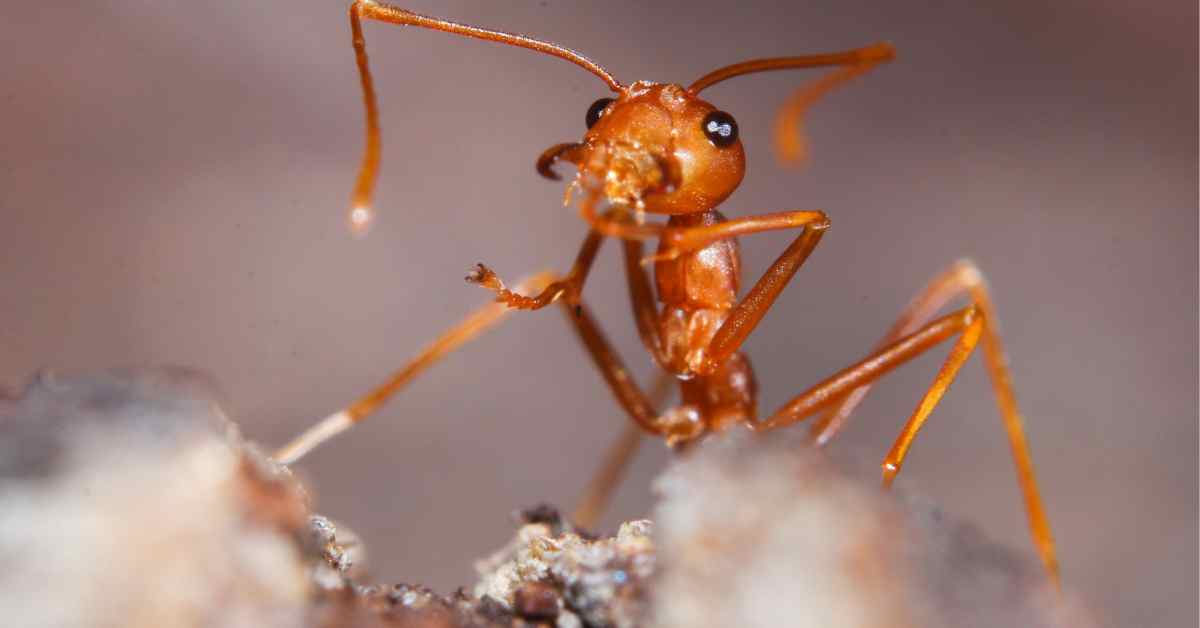Many people interfere with the movement of ants using their fingers and assume that they have changed their path due to fear of being crushed.
However, emotions like fear are only present in larger animals with well-developed brains that can efficiently deal with emotions.
Can Ants Feel Fear? Ants do not feel fear as they have no emotions like anger, fear, and love due to simple brains. However, they can feel threatened by detecting something unpleasant in their surroundings and leave the spot quickly to ensure survival. They are afraid of unpleasant smells, like essential oils and cinnamon.
Ants act like a robot as they cannot feel pain and happiness, or fear and keep working like robots until they reach the death phase.
Their purpose of life is defined, and their castes determine their roles in a colony. Moreover, they do not get enough time to build complex internal structures due to their shorter lifespan.
Why do ants not feel fear?
Ants do not feel fear due to a lack of emotions as they only rely on their sense of smell, touch, and vision, favored by their tiny brains.
Their brains lack a particular region or component playing a role in processing sensory information and interpreting the specific information transmitted by nerve impulses.
However, ants’ brains can efficiently decode visual messages, odor molecules, and mechanical stimuli to provide an appropriate response, but it does not control the emotion of fear.
In addition, these insects rarely experience fearful situations as they prefer to live and move in the form of groups reducing the risk of attack.
They are not independent creatures like other animals and operate in the form of a colony. Moreover, they can feel uncomfortable after getting lost as they have no trails to follow.
A single ant gets confused instead of fear because it has lost its purpose in life after getting alone and tries to find the right direction to move.
Do ants have emotions?
Many insects lack emotions, which are a characteristic feature of higher animals with complex brains and well-developed nervous systems.
The brain controls all body functions, from the movement of limbs to breathing processes and even the processing of emotions.
It is divided into different parts that control particular functions. For example, the part of the brain controlling emotions is not present in smaller invertebrates like ants.
Ants have no feelings like pain, love, fear, empathy, anger, etc, as they lack emotions due to the presence of simple brains and less number of nerves.
In the same way, other insects, like cockroaches, are also unable to feel pain, affection, and anger.
Ants do not feel happy or sad as these emotions are only present in the higher animals having larger brains.
However, these insects feel happy in the sense that they are satisfied with their situation when they have enough food to eat and a safe place to live.
In the same way, there are no emotions like anger in these insects, but they show combative behavior to deal with threats when they detect danger.
They can only differentiate between pleasant and unpleasant situations and behave accordingly.
The presence of predators at a close distance makes them feel uncomfortable when they detect vibrations that are not related to the feeling of fear.
Similarly, the presence of food in their nest during winter makes them feel good as they do not have to forage for food on cold nights.
What do ants do when they get scared?
Ants can sense danger as their bodies adapt to the environment differently. For example, they have compound eyes to see objects that transfer visual signals to the brain.
These signals are transferred to the brain through nerve impulses and processed to give an appropriate response. For example, their brain commands them to move away when it is detected as a harmful object.
In the same way, their antennae detect chemicals or pheromones and pass on the signal in the form of odor molecules to the brain.
It makes them avoid the smell when it is unpleasant after processing odor molecules.
The mechanical stimuli are also considered signals used by the brain, which commands the insect to act accordingly.
It signals them to run away quickly when the mechanical stimuli are not safe for these insects. They prefer to change their nest location when they detect a threat in their territory.
So, they follow a fight or flight mechanism and combat for their survival if it is possible to defeat the opponent; otherwise, they prefer to leave the spot quickly and move to safe areas.
What things make ants feel threatened?
Ants feel threatened when they find something unpleasant around them like they do not like the smell of a few things that can cause discomfort.
The smell of cinnamon, lemon oil, and black pepper makes them uncomfortable and creates an unpleasant situation for these insects; that’s why many people use them to repel ants.
In addition, cold and dark places do not attract them as they prefer to live in warm areas with an artificial light source.
Vinegar has a strong scent and is detected as an irritant by ants, making them feel fear and threatened.
Boric acid can kill them by interfering with the digestive system, so they try to move away from it to ensure their survival.
Furthermore, the essence of baby powder is also unpleasant for these insects as they do not like talc, which is made of magnesium, oxygen, and silicon.
So, many things can threaten ants due to bad smells and safety risks, making them run away.
Related Articles:

